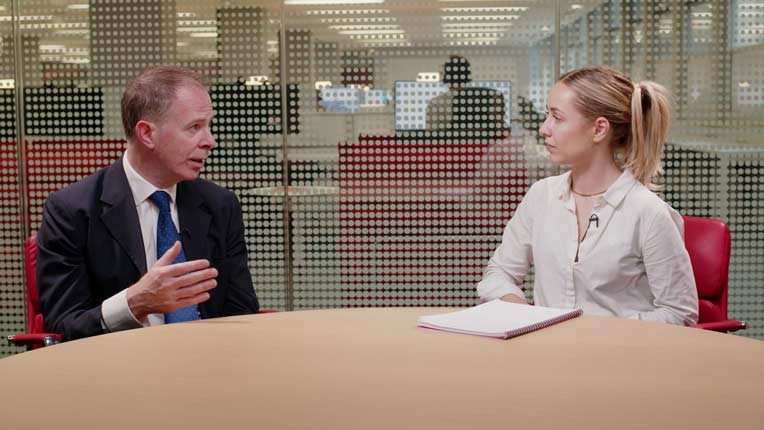Morningstar's "Perspectives" series features investment insights from selected third-party contributors. Here Toby Hayes, portfolio manager, Franklin Templeton Solutions, explains why he believes in monetising volatility.
Significant moves in macro indicators such as the strength of the US dollar and volatility in the price of commodities—not least oil—have had massive economic implications in recent months, both at the corporate and government level. While some of these macro-trends might be considered positive, their benefits tend to be felt further down the line.
For example, the benefits to the consumer of lower oil prices are probably likely to be seen feeding through to global growth in the second half of this year. On the other hand, we are already seeing evidence of the pain of the effect of the US dollar’s rise on US exporters and those with dollar-denominated liabilities.
This is why we’re positioning our strategy defensively at the moment: I think we’re braced for a more volatile patch. When volatility rises, I want to look to potentially monetise it in a way that I believe traditional multi-asset income strategies cannot.
Strengthening Dollar and Spiralling Commodities
In our view, there are a number of macro events at play currently which are incredibly destructive globally. The first is the relative strength of the US dollar, which is throwing into question the longer-term sustainability of some of the profits a number of S&P 500 companies have reported over recent quarters. The second is the downward spiral of commodity prices, driven in part by the slowdown in the Chinese economy.
Of these two “macro-hurricanes,” the most significant, we believe, is the first: the emerging strength of the dollar. In our mind, many investors failed to acknowledge the contribution of the relative weakness of the dollar in the past to S&P 500 earnings, even in the face of sluggish growth in the US economy generally.
Most of the stocks in that index are multinational companies with earnings stemming from outside the United States; when the dollar was weak, those earnings were boosted when overseas profits were converted back into dollars.
In the face of growing dollar strength, that situation has gone completely into reverse. In many cases, earnings forecasts have been cut, which poses the question whether the market considers this new development to be a dollar-translation issue, or will it reconsider the S&P 500 as an asset class? It’s a benchmark asset class, so purely looking at the dollar, you could argue strongly that the equity volatility is at best likely to rise and is potentially set up for a possible correction.
On top of that, there is mounting speculation about the US Federal Reserve potentially raising interest rates after it removed the word “patience” from its guidance at its March policy meeting. So I think we are seeing the groundwork falling into place for a possible structural rise in volatility, certainly in US equities.
Meanwhile, the apparent slowdown in Chinese economic growth seems to be increasing the downward pressure on commodity prices and contributing to the second of the macro-hurricanes. It is significant that the effect of both a strengthening dollar and falling commodity prices might be expected to be felt particularly keenly in emerging market economies.
For example, emerging markets that produce commodities have seen national incomes fall in many cases. On the other hand, some emerging markets, such as India and others in Asia that are net importers, have had a massive bonus from the commodity price declines.
Still, we fear a number of emerging market economies may have overleveraged. For those that bought in dollars, we think any continuation of the growth in dollar strength will likely put the squeeze on.
Falling commodity prices and a strong dollar have huge implications for emerging markets and we believe it’s no coincidence that when we’ve seen huge dollar rallies in the past, we’ve seen certain emerging market countries struggling with currency crises.
We are pursuing a classic income-generating strategy using volatility with the goal of garnering a potential premium. We’ve seen a structural rise in volatility, so we believe there’s more value to be found in these income overlays.
At the moment, we feel we would be getting compensated for any upside in asset value we may be giving up by the potential income we’d be bringing in. If there were to be a recognisable bear market, we feel that value would increase because we’d likely not be giving up any upside. This then could be a strategy to consider for the investor who thinks we’re coming to the end of a cyclical bull market.
The risk to the strategy would be a scenario where the cyclical bull market continues and volatility collapses back to near zero. An investor with a more traditional focus—even one that encompasses high-yield or emerging market debt—would more likely expect to outperform in that situation. But for an investor looking for a more defensive position, we believe this approach could be something to consider.
Morningstar Disclaimer
The views contained herein are those of the author(s) and not necessarily those of Morningstar. If you are interested in Morningstar featuring your content on our website, please email submissions to UKEditorial@morningstar.com.



























